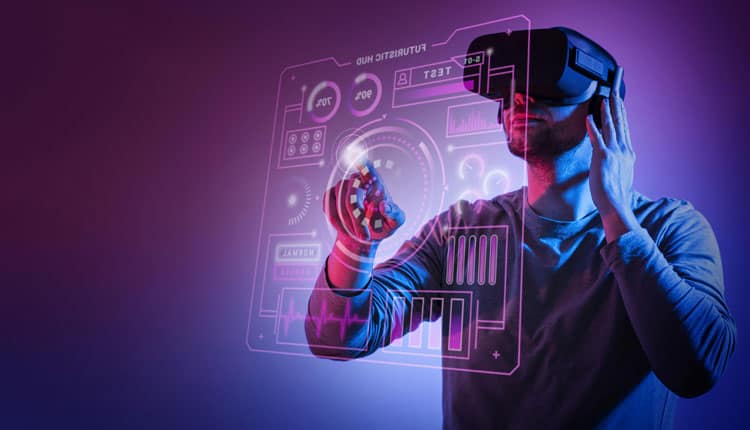By Krishna Kumar, Founder and CEO, Learnbay
In today’s hyper-connected world, the education technology (ed-tech) sector is on an exhilarating evolutionary trajectory. This progress is characterized by emerging technologies such as Artificial Intelligence, Virtual Reality, Augmented Reality, and now, the Metaverse, stirring up conventional learning and teaching methods.
The current ed-tech landscape is witnessing a rapid proliferation of these cutting-edge technologies. Post the COVID-19 pandemic, the education system across the globe has adapted and evolved to include digital learning, and this evolution is far from over. The increased adoption of digital platforms for learning and teaching has created a unique space for emerging tech innovations.
The Metaverse, a term coined to represent a collection of virtual shared spaces, including VR and AR universes, is now being leveraged to reimagine the future of education. Many ed-tech companies are experimenting with the Metaverse’s potential, enhancing and improving learning outcomes.
So, how does the Metaverse promise to contribute to education?
The Metaverse presents an exceptional opportunity to improve learning outcomes by providing personalized, immersive, and experiential learning experiences. As opposed to traditional learning methods that may be one-size-fits-all, the Metaverse enables a student-centric approach where each learner’s needs and learning styles are considered. Complex concepts can be broken down into immersive experiences, making learning more engaging and digestible.
For instance, instead of reading about the Egyptian Pyramids, students can virtually visit them, delve into the historical milieu, interact with virtual guides, or even construct a pyramid. This level of personalization and immersion piques students’ curiosity and engagement, leading to improved comprehension and retention.
Furthermore, the Metaverse facilitates experiential learning. Students can perform virtual experiments, role-plays, or collaborations that would be impossible or impractical in a physical classroom. They can explore the deep seas, traverse the solar system, or simulate chemical reactions, all in a safe virtual environment. This fosters learners’ creativity, critical thinking, and problem-solving skills, preparing them for the future.
Despite the potential benefits, incorporating the Metaverse into mainstream education is challenging. Key among them are ethical and safety considerations. Protecting students’ privacy, ensuring their mental and physical well-being, and managing screen time is paramount. Safeguards must include strict data privacy regulations, controls to prevent cyberbullying, and features to monitor and limit usage. Furthermore, equitable access to this technology, considering the global digital divide, is a significant concern that needs to be addressed.
Another potential challenge lies in integrating the Metaverse into existing education structures. Teachers and educators must be trained and comfortable with this technology to use it effectively. Curriculum and assessment models may need to be updated to fit this new learning paradigm, which may involve significant investment and time.
Looking towards the future, will this trend continue to evolve?
It looks likely. As the Metaverse evolves, so will its role in education. Ongoing advancements in AI, VR, and AR technologies that drive the Metaverse promise to provide even more innovative and immersive learning experiences. And as these technologies become more accessible and affordable, their adoption in education is likely to grow.
However, it’s important to note that the Metaverse is not a replacement for traditional education. It’s an additional tool, a powerful supplement that can make learning more engaging, interactive, and effective. The best outcomes will likely be achieved through a balanced blend of traditional and metaversal education.
In conclusion, while it’s still early, the Metaverse’s potential to enhance the educational landscape is immense. It promises to create a learning environment that is personalized, immersive, and experientially rich. However, careful consideration and handling of the ethical, safety, and integration challenges are crucial. If navigated well, the Metaverse could become a mainstay in the future of ed-tech.



